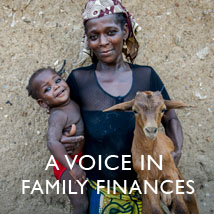Nigeria’s education system has not kept pace with its rapidly growing school-age population. The quality of basic education in Nigeria is extremely poor, leading to low demand and unacceptably low academic performance. Of the 30 million primary school-aged children in the country, it is estimated that up to 10 million are not enrolled in formally recognized schools. Of those students currently in primary school, less than one third will attend junior secondary school and even fewer will proceed to senior secondary school. While education indicators are poor nationwide, they are weakest in the northern states.
The U.S. Ambassador to Nigeria, James F. Entwistle, today announced the awarding of a $10.5 million grant by the U.S. Agency for International Development (USAID) in humanitarian assistance for internally displaced populations in the northeast. The grants will support the activities of the United Nation’s Population Fund (UNFPA), UNICEF, and the World Health Organization (WHO) to improve access to health care services for affected populations in Borno, Adamawa, and Yobe states. With this new funding, total U.S. humanitarian assistance since the start of the crisis is nearly $44 million.
The U.S. Ambassador to Nigeria, James F. Entwistle, today announced the awarding of a $10.5 million grant by the U.S. Agency for International Development (USAID) in humanitarian assistance for internally displaced populations in the northeast. The grants will support the activities of the United Nation’s Population Fund (UNFPA), UNICEF, and the World Health Organization (WHO) to improve access to health care services for affected populations in Borno, Adamawa, and Yobe states. With this new funding, total U.S. humanitarian assistance since the start of the crisis is nearly $44 million.
The on-going conflict in Nigeria’s Northeast has created a complex humanitarian and economic crisis that has affected millions of people. In addition to the 1.5 million people displaced from their homes, many more have shouldered the responsibility of supporting friends and family members who have fled the fighting. Everyone in the Northeast has felt the economic impact of the insurgency as trade and agricultural production have stopped in many areas. The challenge of responding to this situation is daunting for the affected communities and states, as well as the federal government.
USAID’s flagship agricultural project in Nigeria is under the U.S. Government's Global Hunger and Food Security Initiative, also known as Feed the Future.










Comment
Make a general inquiry or suggest an improvement.